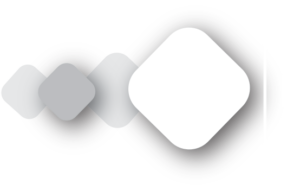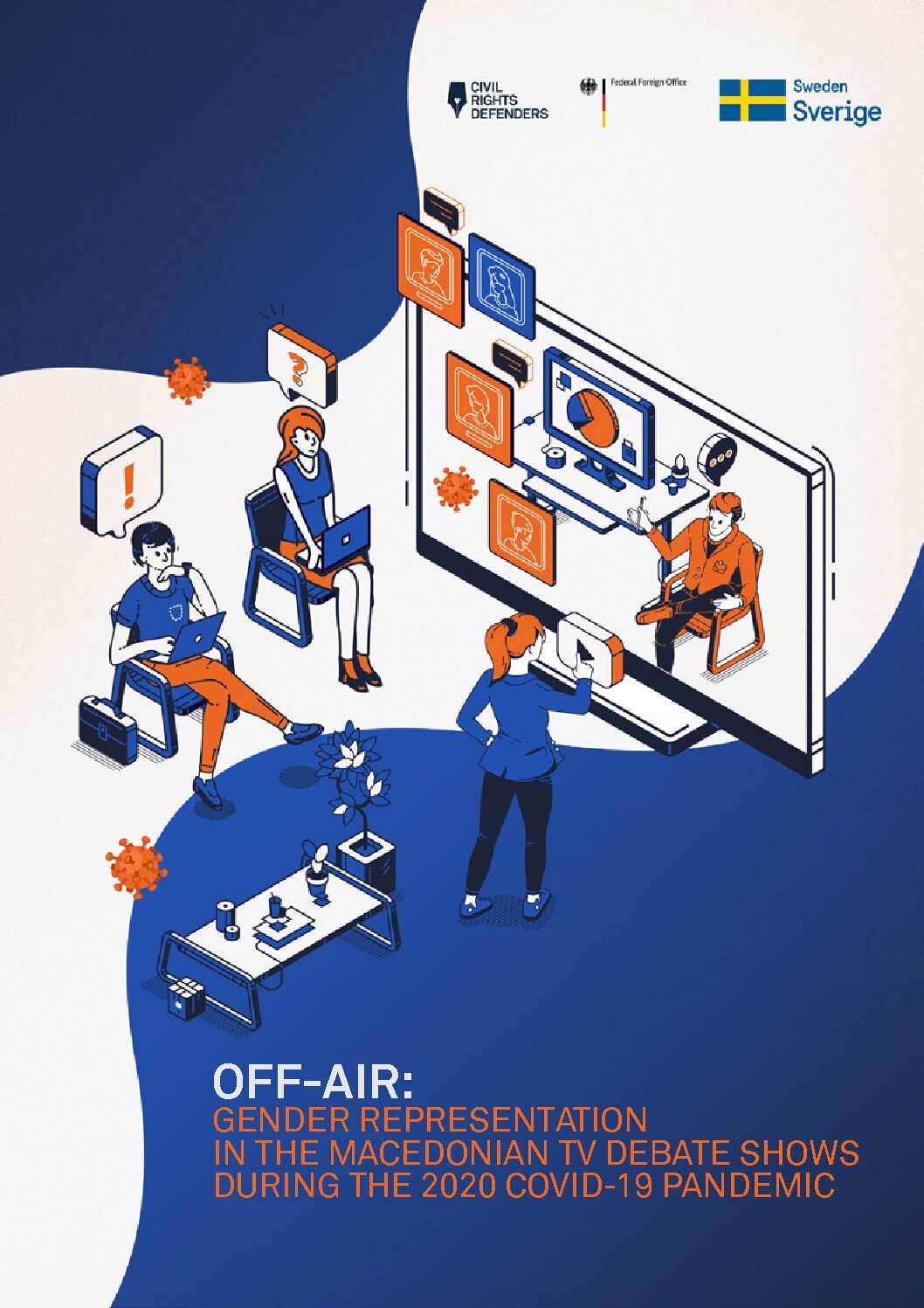As a part of the Civil Rights Defenders’ HRD Academy, 2020 our project assistant, Angela Delevska, together with Elena Danova produced a policy paper on the gender representation in the Macedonian TV debate shows during the Covid-19 pandemic.
The treatment that gender equality-related issues receive in the media, as well as the way in which women are used as sources and/or experts, remains a significant challenge. The coronavirus pandemic continues to have significant ramifications for public health, social welfare and the economy, but it also presents a significant threat for gender equality and further deepens existing inequalities. The media play a significant role in framing these issues and shaping public opinion.
The herein reported research looked at to what extent and on which topics were women used as a source of expertise and how much the media covered gender issues regarding the COVID-19 crisis. The research used a combination of quantitative and qualitative methods to analyse debate programs in North Macedonia broadcasted in 2020 and dealing with topics related to the novel coronavirus.
The analysis shows that gender and gender equality are not being treated as relevant categories in discussions on the COVID-19 crisis. The impact of the crisis on gender equality was not part of the dominant shaping of the crisis and women were largely absent as a category or group with particular needs and problems. The percentage of women who were invited to speak within their expertise is very small, even invisible. Almost half of the broadcasted programs are ‘manels’. The gender of the program host has no bearing on the extent to which women are used as sources. No other gender is present or talked about, resulting in full invisibility of trans* persons. Where gender, and especially women, were part of the topics discussed in the debates, the focus was again on the traditional gender roles in accordance with dominant social values. The dominant use of the masculine natural gender form of animate things, although on its face presents itself as gender-neutral language, is, in fact, a form of discursive exclusion of women and a form of annulment of gender differences.
To rectify this situation, the policy brief proposes a set of recommendations on improving the focus on gender equality and increasing gender sensitivity and awareness of media outlets, editors, journalists and other media workers.
The HRD Academy is held annually, allowing young activists to learn from experts and gain practical experience on human rights issues impacting the Western Balkans. The 2020 class began in November 2020 with a 8-day online programme.
Over the past few months, participants compiled these policy papers with the support of mentors and human rights experts from the region. All the policy papers are available at the CRD’s website: https://crd.org/2021/04/06/hrd-academy-policy-papers/

